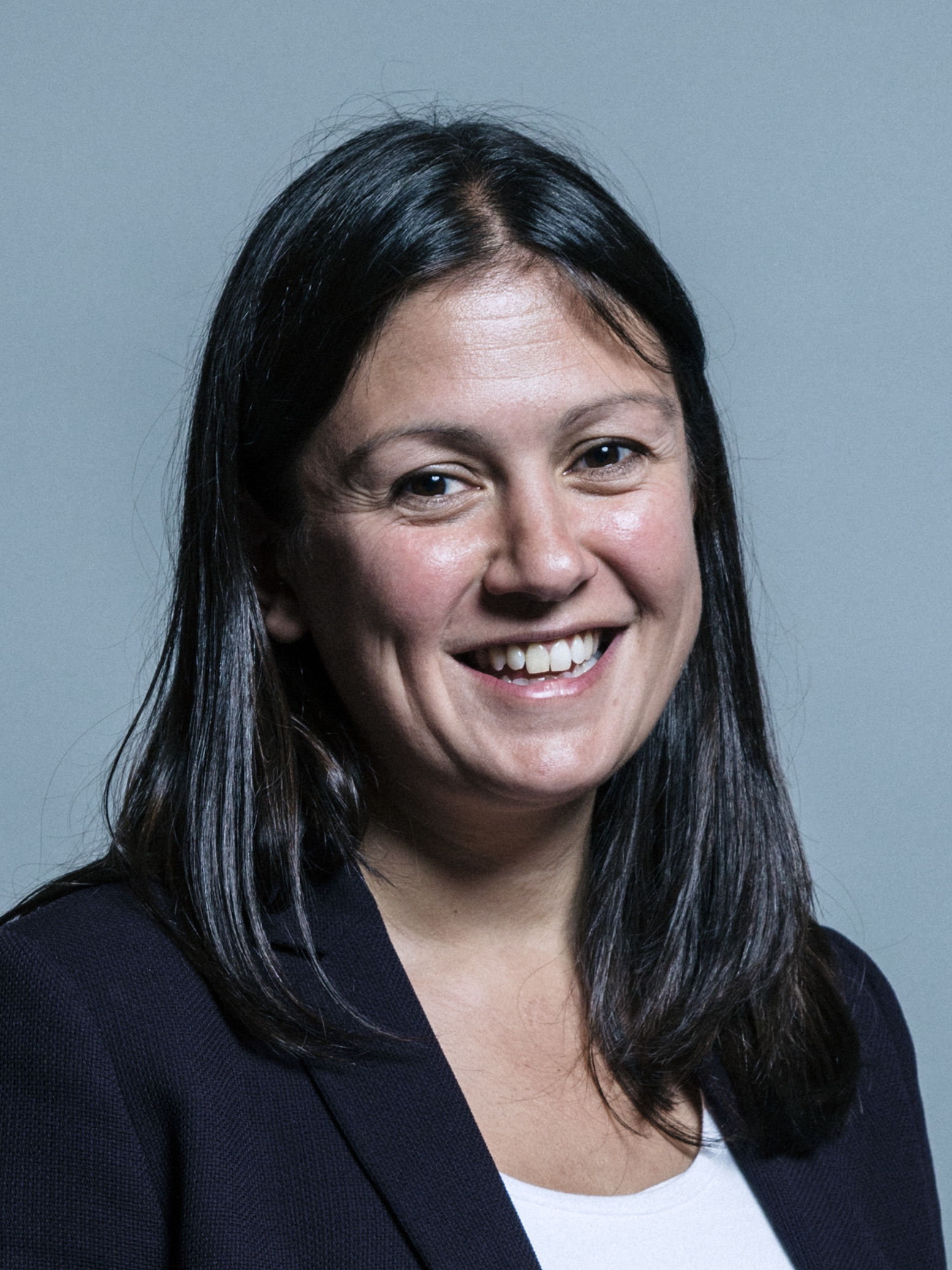Department for Digital, Culture, Media & Sport
The Department for Culture, Media and Sport will focus on supporting culture, arts, media, sport, tourism and civil society across every part of England — recognising the UK’s world-leading position in these areas and the importance of these sectors in contributing so much to our economy, way of life and our reputation around the world.
Shadow Ministers / Spokeperson
Liberal Democrat
Baroness Bonham-Carter of Yarnbury (LD - Life peer)Liberal Democrat Lords Spokesperson (Culture, Media and Sport)
Scottish National Party
Brendan O'Hara (SNP - Argyll, Bute and South Lochaber)Shadow SNP Spokesperson (Culture, Media and Sport)
Green Party
Siân Berry (Green - Brighton Pavilion)Green Spokesperson (Culture, Media and Sport)
Conservative
Nigel Huddleston (Con - Droitwich and Evesham)Shadow Secretary of State for Culture, Media and Sport
Liberal Democrat
Anna Sabine (LD - Frome and East Somerset)Liberal Democrat Spokesperson (Culture, Media and Sport)
Junior Shadow Ministers / Deputy Spokesperson
Conservative
Lord Parkinson of Whitley Bay (Con - Life peer)Shadow Minister (Culture, Media and Sport)
Louie French (Con - Old Bexley and Sidcup)
Shadow Minister (Culture, Media and Sport)
Ministers of State
Baroness Twycross (Lab - Life peer)Minister of State (Department for Culture, Media and Sport)
Ian Murray (Lab - Edinburgh South)
Minister of State (Department for Culture, Media and Sport)
Parliamentary Under-Secretaries of State
Stephanie Peacock (Lab - Barnsley South)Parliamentary Under Secretary of State (Department for Culture, Media and Sport)
09:55
Organisers and facilitators of major sporting and cultural events are invited to give evidence to a new inquiry from MPs …
To ask the Secretary of State for Culture, Media and Sport, what steps she is taking to help increase the …
This Order brings into force on 13th February 2023 a variation of the Public Lending Right Scheme 1982 (“the Scheme”) …
A Bill to make provision for the regulation of the processing of information relating to identified or identifiable living individuals; …
11:29
News and Communications
Department for Digital, Culture, Media & Sport Commons Appearances
Oral Answers to Questions is a regularly scheduled appearance where the Secretary of State and junior minister will answer at the Dispatch Box questions from backbench MPs
Other Commons Chamber appearances can be:- Urgent Questions where the Speaker has selected a question to which a Minister must reply that day
- Adjornment Debates a 30 minute debate attended by a Minister that concludes the day in Parliament.
- Oral Statements informing the Commons of a significant development, where backbench MP's can then question the Minister making the statement.
Westminster Hall debates are performed in response to backbench MPs or e-petitions asking for a Minister to address a detailed issue
Written Statements are made when a current event is not sufficiently significant to require an Oral Statement, but the House is required to be informed.
Most Recent Commons Appearances by Category
Bills currently before Parliament
Department for Digital, Culture, Media & Sport does not have Bills currently before Parliament
Acts of Parliament created in the 2024 Parliament
Department for Digital, Culture, Media & Sport has not passed any Acts during the 2024 Parliament
Department for Digital, Culture, Media & Sport - Secondary Legislation
Petitions
e-Petitions are administered by Parliament and allow members of the public to express support for a particular issue.
If an e-petition reaches 10,000 signatures the Government will issue a written response.
If an e-petition reaches 100,000 signatures the petition becomes eligible for a Parliamentary debate (usually Monday 4.30pm in Westminster Hall).
Departmental Select Committee
Culture, Media and Sport Committee
Commons Select Committees are a formally established cross-party group of backbench MPs tasked with holding a Government department to account.
At any time there will be number of ongoing investigations into the work of the Department, or issues which fall within the oversight of the Department. Witnesses can be summoned from within the Government and outside to assist in these inquiries.
Select Committee findings are reported to the Commons, printed, and published on the Parliament website. The government then usually has 60 days to reply to the committee's recommendations.
11 Members of the Culture, Media and Sport Committee

Culture, Media and Sport Committee Member since 9th September 2024

Culture, Media and Sport Committee Member since 21st October 2024

Culture, Media and Sport Committee Member since 21st October 2024

Culture, Media and Sport Committee Member since 21st October 2024

Culture, Media and Sport Committee Member since 21st October 2024

Culture, Media and Sport Committee Member since 28th October 2024

Culture, Media and Sport Committee Member since 9th December 2024

Culture, Media and Sport Committee Member since 27th October 2025

Culture, Media and Sport Committee Member since 27th October 2025

Culture, Media and Sport Committee Member since 28th October 2025

Culture, Media and Sport Committee Member since 13th November 2025
Culture, Media and Sport Committee: Upcoming Events
Children's tv and video content
3 Mar 2026, 9:30 a.m.
At 10:00am: Oral evidence
Iain Bundred - Director of Policy and Public Affairs at BBC
Patricia Hidalgo - Director of Children & Education at BBC
Kate Morton - Head of Commissioning and Acquisitions at BBC
View calendar - Save to Calendar
Culture, Media and Sport Committee - Private Meeting
4 Mar 2026, 9:30 a.m.
View calendar - Save to Calendar
Culture, Media and Sport Committee: 7 Current Inquiries
Culture, Media and Sport Committee: Previous Inquiries
50 most recent Written Questions
(View all written questions)The Government is committed to ensuring everyone has access to culture and heritage, regardless of location.
Over the course of this parliament, £1.5 billion will be invested across the arts, culture and heritage providing support to arts venues, museums, libraries and heritage buildings across England. It aims to keep venues open, finance urgent repairs and infrastructure projects, bolster long-term resilience, and widen access to arts and culture in communities that have faced under-investment, including in rural areas. The funding includes £160 million for local and regional museums; £425 million to support approximately 300 capital projects in arts venues; £230 million to support heritage projects, including listed places of worship; and £80 million to support Arts Council England's (ACE) National Portfolio Organisations.
ACE plays an important role in supporting arts and culture across the country through its national funding schemes, and is committed to responding to the specific needs of rural areas, supporting artists working in rural areas, improving access for rural audiences and building partnerships for growth. In their 2023–26 investment programme (the ‘National Portfolio’), worth around £440 million a year, investment to cultural organisations in rural areas increased to £44.6 million, benefiting 110 organisations across the country.
Historic England (HE) also plays a central role in celebrating and conserving culture and heritage within rural areas. HE supports DEFRA’s Environmental Land Management, Historic Buildings Restoration Grant, and Farming in Protected Landscapes schemes, which help to safeguard, repair and restore historic and archaeological features on farmland. Further information on HE’s work to support rural heritage, as well as guidance material, can be found on their website.
Minister of State (Department for Science, Innovation and Technology)
In January 2026, the Government announced a package of £1.5 billion Arts Everywhere funding to support arts, culture libraries and heritage over the course of this parliament. The vast majority of this funding is capital investment, and is the single biggest Government investment in arts capital in over a decade.
This investment will support more than 1,000 cultural projects to open up access to culture for everyone, everywhere. It will keep venues open, finance urgent repairs and infrastructure projects, bolster long-term resilience, and widen access to arts and culture in communities that have faced under-investment.
Science and Discovery Centres play an important role supporting science education and fostering curiosity. The Government's response to the 2025 Curriculum and Assessment Review addressed the Science curriculum, whilst the Department for Science Innovation and Technology, and its agencies, such as UKRI, are committed to supporting pathways into STEM careers. Science and Discovery Centres that are accredited museums may be eligible for some of the recently announced funds. Eligibility criteria, and details of how to apply for individual funds, will be published in due course.
Minister of State (Department for Science, Innovation and Technology)
The Government believes that British artists and creators are second-to-none and is committed to giving them security and a regulatory and fiscal environment where creativity can flourish. Arts Council England, a Department for Culture, Media and Sport arm’s length body, receives grant-in-aid funding and money from National Lottery Good Causes to enable it to fund individuals and organisations in the culture and arts sector.
Arts Council England currently provides a number of funds open to individuals including National Lottery Project Grants and Developing Your Creative Practice. Arts Council England expects to launch the next round of Developing Your Creative Practice in April 2026. Between rounds of Developing Your Creative Practice, Arts Council England introduced dedicated R&D funding for individuals, as part of the National Lottery Project Grants under £30,000 strand.
Minister of State (Department for Science, Innovation and Technology)
We are very proud to be delivering a significant package of funding for arts and cultural organisations. I understand the disappointment that funding for independent cinemas was not included in that announcement, though we have no current plans to extend that funding further. We are still operating within a challenging fiscal climate, and across government we have had to make very difficult decisions about where to direct available funding.
In recognition of the challenges that continue to face cinemas across the country, we have introduced permanently lower business rates multipliers for eligible cinemas, which will support the independent cinema sector. We will also continue to stimulate production in order to create a strong slate of films that will support our cinemas to thrive; we are doing this through generous tax incentives, investing in production support services, and delivering our £75 million Screen Growth Package under the Creative Industries Sector Plan. And the British Film Institute, as a DCMS Arm’s Length Body, will continue to support cinemas through the Film Audience Network, a network of more than 1800 cinemas and exhibitors, led by ‘Film Hubs’ across the UK.
My department will continue to work closely with the BFI, UK Cinema Association, and the wider sector to identify further ways to support this industry, and to ensure that cinemas can continue to make culture accessible to every person across the UK.
Minister of State (Department for Science, Innovation and Technology)
We are very proud to be delivering a significant package of funding for arts and cultural organisations. I understand the disappointment that funding for independent cinemas was not included in that announcement, though we have no current plans to extend that funding further. We are still operating within a challenging fiscal climate, and across government we have had to make very difficult decisions about where to direct available funding.
In recognition of the challenges that continue to face cinemas across the country, we have introduced permanently lower business rates multipliers for eligible cinemas, which will support the independent cinema sector. We will also continue to stimulate production in order to create a strong slate of films that will support our cinemas to thrive; we are doing this through generous tax incentives, investing in production support services, and delivering our £75 million Screen Growth Package under the Creative Industries Sector Plan. And the British Film Institute, as a DCMS Arm’s Length Body, will continue to support cinemas through the Film Audience Network, a network of more than 1800 cinemas and exhibitors, led by ‘Film Hubs’ across the UK.
My department will continue to work closely with the BFI, UK Cinema Association, and the wider sector to identify further ways to support this industry, and to ensure that cinemas can continue to make culture accessible to every person across the UK.
Minister of State (Department for Science, Innovation and Technology)
As announced in the National Youth Strategy, we are investing £15 million over the next 3 years in youth workers, volunteers, and other trusted adults to upskill the existing youth sector workforce and increase the number of trusted adults, including youth workers, providing safe support to young people. This will provide funding to youth organisations to help them get and keep the staff and volunteers they need, covering training and qualification bursaries, volunteer support, safeguarding, and new ways to help adults navigate the benefits and challenges of the digital world for young people.
Further work is underway to develop detailed plans for our future workforce funding, in partnership with the youth sector and with young people. This includes consideration of how to ensure young people in underserved communities have access to the support they need.
Parliamentary Under Secretary of State (Department for Culture, Media and Sport)
The Government's National Youth Strategy is a 10-year plan designed to ensure that every young person nationwide has somewhere to go, someone who cares for them, and a community they feel a part of. Halving the participation gap in enriching activities between disadvantaged young people and their peers is one of the clear ambitions of this cross-government strategy.
As part of our commitment to this ambition, DCMS, in partnership with DfE, will invest £22.5 million over 3 years to enable up to 400 schools in areas of greatest need across England to deliver a youth-voice led, tailored enrichment offer. This funding will help schools meet the Enrichment Framework benchmarks and improve join-up between in-school and out-of-school enrichment offers.
The programme will work in tandem with other initiatives, including the Richer Young Lives fund, which will invest over £60 million across the next three years to enable organisations to deliver high-quality youth work and activities, and the £132.5 million ‘Every Child Can’ programme, which will increase disadvantaged young people’s access to enrichment opportunities in the culture, sport, and wider youth sectors.
We are also working closely with the Department for Education to ensure wider government programmes - including the PE and School Sport Partnerships Network, National Centre for Arts and Music Education, and Music Hubs - complement the programme and avoid duplication.
Parliamentary Under Secretary of State (Department for Culture, Media and Sport)
Public libraries are central to the success of the National Year of Reading’s campaign to engage people of all ages with reading. The Reading Agency has been appointed to work with sector partners to deliver and support public library engagement. The Summer Reading Challenge in 2026, and World Book Night, the annual celebration of reading for adults on 23 April 2026, will be key moments for libraries during the National Year of Reading 2026. Throughout the year, The Reading Agency will provide public libraries with resources, toolkits, and print and digital materials to support their work.
Somerset libraries launched its participation in the National Year of Reading on 16 January 2026. All 32 statutory static libraries in Somerset, including five in the Yeovil constituency, will participate across the year, through existing initiatives as well as specific National Year of Reading events, activities and promotions.
Minister of State (Department for Science, Innovation and Technology)
Agricultural policy is the responsibility of the Department for Environment, Food and Rural Affairs. The Government has allocated a record £11.8 billion to sustainable farming and food production over this parliament, investing more than £2.7 billion a year in farming and nature recovery. This includes the Government's Paludiculture Exploration Fund, which has been exploring opportunities to support multi-functional crops on rewetted lowland peatlands. One of the twelve trials, the Broads Authority's "FibreBroads", funded a series of workstreams including fibre products for building materials such as reed for thatch, as well as fibreboards and acoustic panels from other wetland crops.
DCMS supports thatching-straw growers through the work of Historic England, Government statutory advisors on the historic environment and arms length body of DCMS. Historic England is hosting a thatching-straw growers’ workshop on 11 March 2026, in Marlborough Wiltshire. The event is aimed at thatch straw growers, and will be a unique opportunity for them to meet one another, share knowledge, and hear updates from Historic England on the work being done to support the production of thatching straw. If you wish to find out more about the event and related issues you can contact the National Specialist Services Team at Historic England on nationalspecialistservices@historicengland.org.uk.
Minister of State (Department for Science, Innovation and Technology)
Agricultural policy is the responsibility of the Department for Environment, Food and Rural Affairs. The Government has allocated a record £11.8 billion to sustainable farming and food production over this parliament, investing more than £2.7 billion a year in farming and nature recovery. This includes the Government's Paludiculture Exploration Fund, which has been exploring opportunities to support multi-functional crops on rewetted lowland peatlands. One of the twelve trials, the Broads Authority's "FibreBroads", funded a series of workstreams including fibre products for building materials such as reed for thatch, as well as fibreboards and acoustic panels from other wetland crops.
DCMS supports thatching-straw growers through the work of Historic England, Government statutory advisors on the historic environment and arms length body of DCMS. Historic England is hosting a thatching-straw growers’ workshop on 11 March 2026, in Marlborough Wiltshire. The event is aimed at thatch straw growers, and will be a unique opportunity for them to meet one another, share knowledge, and hear updates from Historic England on the work being done to support the production of thatching straw. If you wish to find out more about the event and related issues you can contact the National Specialist Services Team at Historic England on nationalspecialistservices@historicengland.org.uk.
Minister of State (Department for Science, Innovation and Technology)
Public libraries are central to the success of the National Year of Reading’s campaign to engage people of all ages with reading. The Reading Agency has been appointed to work with sector partners to deliver and support public library engagement. The Summer Reading Challenge in 2026, and World Book Night, the annual celebration of reading for adults on 23 April 2026, will be key moments for libraries during the National Year of Reading 2026. Throughout the year, The Reading Agency will provide public libraries with resources, toolkits, and print and digital materials to support their work and boost engagement.
Local authorities such as Bournemouth, Christchurch and Poole, Hillingdon, Oxfordshire and Nottinghamshire are actively celebrating and participating in the National Year of Reading programmes with various activities and events at their library branches.
Minister of State (Department for Science, Innovation and Technology)
Public libraries are central to the success of the National Year of Reading’s campaign to engage people of all ages with reading. The Reading Agency has been appointed to work with sector partners to deliver and support public library engagement. The Summer Reading Challenge in 2026, and World Book Night, the annual celebration of reading for adults on 23 April 2026, will be key moments for libraries during the National Year of Reading 2026. Throughout the year, The Reading Agency will provide public libraries with resources, toolkits, and print and digital materials to support their work and boost engagement.
Local authorities such as Bournemouth, Christchurch and Poole, Hillingdon, Oxfordshire and Nottinghamshire are actively celebrating and participating in the National Year of Reading programmes with various activities and events at their library branches.
Minister of State (Department for Science, Innovation and Technology)
Public libraries are central to the success of the National Year of Reading’s campaign to engage people of all ages with reading. The Reading Agency has been appointed to work with sector partners to deliver and support public library engagement. The Summer Reading Challenge in 2026, and World Book Night, the annual celebration of reading for adults on 23 April 2026, will be key moments for libraries during the National Year of Reading 2026. Throughout the year, The Reading Agency will provide public libraries with resources, toolkits, and print and digital materials to support their work and boost engagement.
Local authorities such as Bournemouth, Christchurch and Poole, Hillingdon, Oxfordshire and Nottinghamshire are actively celebrating and participating in the National Year of Reading programmes with various activities and events at their library branches.
Minister of State (Department for Science, Innovation and Technology)
Public libraries are central to the success of the National Year of Reading’s campaign to engage people of all ages with reading. The Reading Agency has been appointed to work with sector partners to deliver and support public library engagement. The Summer Reading Challenge in 2026, and World Book Night, the annual celebration of reading for adults on 23 April 2026, will be key moments for libraries during the National Year of Reading 2026. Throughout the year, The Reading Agency will provide public libraries with resources, toolkits, and print and digital materials to support their work and boost engagement.
Local authorities such as Bournemouth, Christchurch and Poole, Hillingdon, Oxfordshire and Nottinghamshire are actively celebrating and participating in the National Year of Reading programmes with various activities and events at their library branches.
Minister of State (Department for Science, Innovation and Technology)
Public libraries are central to the success of the National Year of Reading’s campaign to engage people of all ages with reading. The Reading Agency has been appointed to work with sector partners to deliver and support public library engagement. The Summer Reading Challenge in 2026, and World Book Night, the annual celebration of reading for adults on 23 April 2026, will be key moments for libraries during the National Year of Reading 2026. Throughout the year, The Reading Agency will provide public libraries with resources, toolkits, and print and digital materials to support their work and boost engagement.
Local authorities such as Bournemouth, Christchurch and Poole, Hillingdon, Oxfordshire and Nottinghamshire are actively celebrating and participating in the National Year of Reading programmes with various activities and events at their library branches.
Minister of State (Department for Science, Innovation and Technology)
Sport can be a uniquely powerful tool to engage at-risk young people.
The Government, through its arm’s-length body for grassroots sport, Sport England, invests in community-level sport and physical activity projects across the country. This includes investing in organisations like StreetGames, whose "doorstop approach” to sport has been evaluated as effective in reducing youth crime and anti-social behaviour, alongside improving health and boosting educational attainment and employability.
Parliamentary Under Secretary of State (Department for Culture, Media and Sport)
The National Year of Reading is a Department for Education initiative, in collaboration with the National Literacy Trust.
Young Futures Hubs will bring together services to improve access to opportunities and support for young people at community level, promoting positive outcomes and enabling them to thrive. Local Authorities participating in the programme will co-design the services in each hub alongside young people in the community to ensure it meets local needs.
Young Futures Hubs are just one part of delivering support within a much wider youth landscape, and will work closely with core services and wider initiatives spanning youth, education, employment, social care, mental health, youth justice and policing.
Parliamentary Under Secretary of State (Department for Culture, Media and Sport)
The National Year of Reading is a Department for Education initiative, in collaboration with the National Literacy Trust.
Young Futures Hubs will bring together services to improve access to opportunities and support for young people at community level, promoting positive outcomes and enabling them to thrive. Local Authorities participating in the programme will co-design the services in each hub alongside young people in the community to ensure it meets local needs.
Young Futures Hubs are just one part of delivering support within a much wider youth landscape, and will work closely with core services and wider initiatives spanning youth, education, employment, social care, mental health, youth justice and policing.
Parliamentary Under Secretary of State (Department for Culture, Media and Sport)
The National Year of Reading is a Department for Education initiative, in collaboration with the National Literacy Trust.
Young Futures Hubs will bring together services to improve access to opportunities and support for young people at community level, promoting positive outcomes and enabling them to thrive. Local Authorities participating in the programme will co-design the services in each hub alongside young people in the community to ensure it meets local needs.
Young Futures Hubs are just one part of delivering support within a much wider youth landscape, and will work closely with core services and wider initiatives spanning youth, education, employment, social care, mental health, youth justice and policing.
Parliamentary Under Secretary of State (Department for Culture, Media and Sport)
The Government is working closely with the sport sector and local leaders to develop plans for funding for a range of sports across the country based on what each community needs. This will ensure that our investment in community grassroots sports facilities reaches as many people as possible to reduce inactivity levels.
The Government’s investment of £85 million will deliver new and upgraded grassroots sports facilities across the UK through the Multi-Sport Grassroots Facilities (MSGF) Programme in 2026/27. An additional £15 million will be invested into innovative facilities in England, to allow more people to participate in sports they wish to.
Projects funded through the MSGF Programme include artificial grass pitches, changing pavilions and floodlights, and at least 40% of funded projects have a multi-sport offer, allowing more people to participate in a wider variety of sports.
Parliamentary Under Secretary of State (Department for Culture, Media and Sport)
The Government is working closely with the sport sector and local leaders to develop plans for funding for a range of sports across the country based on what each community needs. This will ensure that our investment in community grassroots sports facilities reaches as many people as possible to reduce inactivity levels.
The Government’s investment of £85 million will deliver new and upgraded grassroots sports facilities across the UK through the Multi-Sport Grassroots Facilities (MSGF) Programme in 2026/27. An additional £15 million will be invested into innovative facilities in England, to allow more people to participate in sports they wish to.
Projects funded through the MSGF Programme include artificial grass pitches, changing pavilions and floodlights, and at least 40% of funded projects have a multi-sport offer, allowing more people to participate in a wider variety of sports.
Parliamentary Under Secretary of State (Department for Culture, Media and Sport)
The National Year of Reading is a Department for Education initiative, in collaboration with the National Literacy Trust.
Young Futures Hubs will bring together services to improve access to opportunities and support for young people at community level, promoting positive outcomes and enabling them to thrive. Local Authorities participating in the programme will co-design the services in each hub alongside young people in the community to ensure it meets local needs.
Young Futures Hubs are just one part of delivering support within a much wider youth landscape, and will work closely with core services and wider initiatives spanning youth, education, employment, social care, mental health, youth justice and policing.
Parliamentary Under Secretary of State (Department for Culture, Media and Sport)
The Government is committed to ensure everyone, regardless of where they live, should have access to quality sport and physical activity opportunities.
That is why we provide the majority of support for grassroots sports through our Arm’s Length Body, Sport England, which annually invests over £250 million in Exchequer and Lottery funding. They invest in over 90 Place Partnerships in various locations across the country, including in rural areas, to promote sport and physical activity.
In addition, on 27 January, the Government announced that £85 million of the £400 million package for grassroots sport facilities will be invested in during 2026/27, funding the continuation of the Multi-Sport Grassroots Facilities Programme. This funding is designed to increase participation opportunities and benefit the areas most in need, with 50% investment going to the 30% most deprived areas in the UK.
Parliamentary Under Secretary of State (Department for Culture, Media and Sport)
The Government is committed to supporting grassroots sport clubs, which play an important role within communities across the country.
The Government provides the majority of support for grassroots sport through our Arm’s Length Body, Sport England, which annually invests over £250 million in Exchequer and Lottery Funding. Their Movement Fund offers grants ranging from £300 - £15,000 to sports clubs to improve physical activity opportunities for the people and communities that need it most. Sport England’s free online resource, Buddle, also offers free guidance to support small sports clubs.
In addition, on 27 January, the Government announced that £85 million of the £400 million package for grassroots sport facilities will be invested in during 2026/27, funding the continuation of the Multi-Sport Grassroots Facilities Programme. This funding is designed to increase participation opportunities and benefit the areas most in need, with 50% investment going to the 30% most deprived areas in the UK.
Parliamentary Under Secretary of State (Department for Culture, Media and Sport)
Supporting creative and cultural touring is a manifesto commitment for this Government and delivering on it requires coordinated action across Whitehall, given the range of policy areas involved, including mobility, customs and logistics. Enabling artists and their crews to tour more easily supports shared economic growth, job creation and artistic innovation across Europe.
We recognise the practical challenges that current arrangements present for musicians and their crews, particularly smaller and emerging artists. Building on the Common Understanding Commitment reached at the inaugural UK-EU Summit, we are exploring with the EU Commission and EU Member States how best to improve arrangements for touring across the European continent.
DCMS Ministers are working closely with Cabinet colleagues to ensure a coherent, cross-Government approach. We are also engaging regularly with the sector to understand the operational impacts and identify workable solutions. Engagement with the EU and Member States will continue in pursuit of practical and proportionate progress, whilst respecting regulatory frameworks on both sides.
Minister of State (Department for Science, Innovation and Technology)
The Government recognises the transformative role that grassroots boxing clubs play in supporting the nation’s mental health and wellbeing. Our 'Team Up' campaign, which was designed to bolster the resilience and mental health of communities nationwide, also brought to attention the significant role boxing plays in supporting these vital areas for young men.
Boxing clubs provide pastoral and educational support to young people and adults in need, and also help to promote social inclusion, tackle criminal activity and antisocial behaviour, and deliver improvements in physical and mental wellbeing.
Through Sport England, England boxing will receive over £9 million of funding through the period 2022 - 2029. 75% of affiliated English Boxing clubs are located in deprived, urban neighborhoods, serving marginalised communities identified by Sport England as key target groups for increasing sports participation. These clubs operate at low cost, promoting community cohesion, and are often available where other sports are not.
I recently met with the APPG for Boxing and members of the sector to discuss the positive impacts of boxing on participants and how the Government can support grassroots boxing.
Parliamentary Under Secretary of State (Department for Culture, Media and Sport)
The Government recognises the transformative role that grassroots boxing clubs play in supporting the nation’s mental health and wellbeing. Our 'Team Up' campaign, which was designed to bolster the resilience and mental health of communities nationwide, also brought to attention the significant role boxing plays in supporting these vital areas for young men.
Boxing clubs provide pastoral and educational support to young people and adults in need, and also help to promote social inclusion, tackle criminal activity and antisocial behaviour, and deliver improvements in physical and mental wellbeing.
Through Sport England, England boxing will receive over £9 million of funding through the period 2022 - 2029. 75% of affiliated English Boxing clubs are located in deprived, urban neighborhoods, serving marginalised communities identified by Sport England as key target groups for increasing sports participation. These clubs operate at low cost, promoting community cohesion, and are often available where other sports are not.
I recently met with the APPG for Boxing and members of the sector to discuss the positive impacts of boxing on participants and how the Government can support grassroots boxing.
Parliamentary Under Secretary of State (Department for Culture, Media and Sport)
The Government recognises the transformative role that grassroots boxing clubs play in supporting the nation’s mental health and wellbeing. Our 'Team Up' campaign, which was designed to bolster the resilience and mental health of communities nationwide, also brought to attention the significant role boxing plays in supporting these vital areas for young men.
Boxing clubs provide pastoral and educational support to young people and adults in need, and also help to promote social inclusion, tackle criminal activity and antisocial behaviour, and deliver improvements in physical and mental wellbeing.
Through Sport England, England boxing will receive over £9 million of funding through the period 2022 - 2029. 75% of affiliated English Boxing clubs are located in deprived, urban neighborhoods, serving marginalised communities identified by Sport England as key target groups for increasing sports participation. These clubs operate at low cost, promoting community cohesion, and are often available where other sports are not.
I recently met with the APPG for Boxing and members of the sector to discuss the positive impacts of boxing on participants and how the Government can support grassroots boxing.
Parliamentary Under Secretary of State (Department for Culture, Media and Sport)
The Government recognises the transformative role that grassroots boxing clubs play in supporting the nation’s mental health and wellbeing. Our 'Team Up' campaign, which was designed to bolster the resilience and mental health of communities nationwide, also brought to attention the significant role boxing plays in supporting these vital areas for young men.
Boxing clubs provide pastoral and educational support to young people and adults in need, and also help to promote social inclusion, tackle criminal activity and antisocial behaviour, and deliver improvements in physical and mental wellbeing.
Through Sport England, England boxing will receive over £9 million of funding through the period 2022 - 2029. 75% of affiliated English Boxing clubs are located in deprived, urban neighborhoods, serving marginalised communities identified by Sport England as key target groups for increasing sports participation. These clubs operate at low cost, promoting community cohesion, and are often available where other sports are not.
I recently met with the APPG for Boxing and members of the sector to discuss the positive impacts of boxing on participants and how the Government can support grassroots boxing.
Parliamentary Under Secretary of State (Department for Culture, Media and Sport)
Further details regarding the eligibility criteria and application process for the new Places of Worship Renewal Fund will be published in due course.
Minister of State (Department for Science, Innovation and Technology)
DCMS conducted an evaluation of the Listed Places of Worship Grant Scheme, which included an extensive survey of current and past scheme users and is published here: https://www.gov.uk/government/publications/evaluation-of-the-listed-places-of-worship-scheme-final-report.
The evaluation did not specifically assess the impact of the Listed Places of Worship Grant Scheme on community services hosted by places of worship, including (a) food banks, (b) youth groups and (c) after school clubs. However, we are aware that grants from the scheme will have enabled many recipients to continue to provide these vital community services.
Our evaluation showed that while it had many benefits, 80% of respondents said that they would still have carried out the work without the rebate. As we look towards a new fiscal period and the evolving needs of our community, it is essential that government support is deployed to the areas where it can have the greatest impact and where it is needed most. That is why over the next four years, the Places of Worship Renewal Fund will invest £92 million capital funding into listed places of worship, some of which host these community services.
Minister of State (Department for Science, Innovation and Technology)
Each local authority is responsible for assessing the needs of their local communities and designing a library service to meet those needs within their available resources.
DCMS supports library services by providing guidance on any proposed changes to their statutory library service and shares best practice from other library services who have undertaken similar changes. DCMS also works across government departments to promote public libraries’ contributions to a range of important agendas and encourage a “libraries first” approach to delivery of government projects and policies.
Core funding for libraries is through the Local Government Finance Settlement. In 2026-27 the government will make available £78 billion in Core Spending Power for local authorities in England in 2026-27, a 6.1% increase compared to 2025-26.
In January 2026 the DCMS Secretary of State announced continued investment in the Libraries Improvement Fund, meaning £27.5 million over the period 2025-30. This will enable library services across England to invest in a range of projects to upgrade buildings and technology to meet changing user needs. Nottinghamshire County Council has previously received £399,086 from this fund to support projects in a number of their libraries.
Minister of State (Department for Science, Innovation and Technology)
The Public Libraries and Museums Act 1964 requires all local authorities in England to provide a comprehensive and efficient library service. Each local authority is responsible for assessing the needs of their local communities and designing a library service to meet those needs within their available resources.
Library service provision, including the number and location of static libraries, should take account of factors such as the rurality of the area and the availability and cost of public transport links. The statutory library provision in Somerset is delivered from 32 static libraries, as well as a mobile library service and a home library service.
The Government is committed to getting local government back on its feet. The final Local Government Finance Settlement for 2026-27 will make available £78 billion in Core Spending Power for local authorities in England in 2026-27, a 6.1% increase compared to 2025-26.
Minister of State (Department for Science, Innovation and Technology)
Further details regarding the eligibility criteria and application process for the new Places of Worship Renewal Fund will be published in due course.
Minister of State (Department for Science, Innovation and Technology)
This Government is proud to support industrial heritage, which is central to our nation's history. Last year, the Heritage at Risk Capital Fund supported a wide range of industrial heritage sites, including £1 million for the Woodhorn Colliery in Northumberland.
We intervened to save the Ironbridge Trust in Shropshire, the birthplace of the industrial revolution, with a £9 million investment. Furthermore we recently announced a further £200 million in new funding over this parliament to protect and preserve heritage.
Minister of State (Department for Science, Innovation and Technology)
The Government is committed to making arts and culture accessible to everyone. We invest £600 million annually through Arts Council England to support access to arts and culture across the country. Our £1.5 billion Arts Everywhere investment will save over 1,000 local cultural venues, restoring pride in place and national renewal. This government’s Curriculum Review will ensure every child receives a rich arts education.
We will soon respond to the Hodge Review, which offered recommendations to ensure that creativity is accessible to all.
Minister of State (Department for Science, Innovation and Technology)
This Government is dedicated to improving the lives of young people; that is why we launched the National Youth Strategy and the Young Futures Hubs programme - to ensure they have safe spaces to go and meaningful things to do. Our eight early adopter areas, which will be operational by March 2026, will allow us to capture best practice before we roll out 50 hubs across the country by 2029. I am working closely with colleagues across departments to ensure we build on collective expertise and deliver a joined-up service for young people.
Parliamentary Under Secretary of State (Department for Culture, Media and Sport)
Football reaches communities like nothing else. The department is working with partners to develop the largest-ever UEFA EURO Community Programme, backed by a social impact fund of around £45 million, which will ensure the impact supports communities far beyond the tournament itself. Plans for the programme and fund are in development, and more details will be shared in due course.
Parliamentary Under Secretary of State (Department for Culture, Media and Sport)
The list of specified offences that trigger automatic disqualification from serving as a charity trustee is available under section 178A of the Charities Act 2011:
Case A: specified offences(1) The following offences are specified for the purposes of Case A—
1. An offence to which Part 4 of the Counter-Terrorism Act 2008 applies (see sections 41 to 43 of that Act).
2. An offence under section 13 or 19 of the Terrorism Act 2000 (wearing of uniform etc, and failure to disclose information).
3. A money laundering offence within the meaning of section 415 of the Proceeds of Crime Act 2002.
4. An offence under any of the following provisions of the Bribery Act 2010—
section 1 (bribing another person),
section 2 (offences relating to being bribed),
section 6 (bribery of foreign public officials),
section 7 (failure of commercial organisations to prevent bribery).
5. An offence under section 77 of this Act.
6. An offence of—
misconduct in public office,
perjury,
perverting the course of justice.
(2) An offence which has been superseded (directly or indirectly) by an offence specified in subsection (1) is also specified for the purposes of Case A.
(3) In relation to an offence specified in subsection (1) or (2), the following offences are also specified for the purposes of Case A—
an offence of attempt, conspiracy or incitement to commit the offence;
an offence of aiding, abetting, counselling or procuring the commission of the offence;
an offence under Part 2 of the Serious Crime Act 2007 (encouraging or assisting) in relation to the offence.
(4)
(4) The Secretary of State may amend this section by regulations to add or remove an offence
In relation to terrorism-related offences, this includes an unspent conviction for an offence to which Part 4 of the Counter-Terrorism Act 2008 applies; or an offence under section 13 or 19 of the Terrorism Act 2000.
The Government has no plans to change the disqualification criteria for standing as a candidate in UK general elections or membership of the House of Commons beyond the criteria currently set out in the House of Commons Disqualification Act 1975 and the Representation of the People’s Act 1981.
Baroness in Waiting (HM Household) (Whip)
As part of the government’s ambition to halve the participation gap, DCMS, in partnership with DfE,will invest £22.5 million through the Enrichment Expansion Programme (EEP). This funding will support up to 400 schools provide youth-voice led, tailored, and high-quality enrichment offers.
Whilst the design of the EEP is ongoing, the department is taking learnings from the Enrichment Pilot Programme around how to ensure long term change in the way schools develop their enrichment offer. DCMS is also working closely with DfE to ensure other programmes complement the EEP and avoid duplication.
The EEP will work in tandem with other government initiatives, and participating schools will be supported to link up with local authorities and other local providers and initiatives. As the programme is currently being designed, further details on evaluation plans, impact measurements and indicators of success will be shared in due course and we will commission an evaluation contractor to monitor and assess the EEP.
Parliamentary Under Secretary of State (Department for Culture, Media and Sport)
As part of the government’s ambition to halve the participation gap, DCMS, in partnership with DfE,will invest £22.5 million through the Enrichment Expansion Programme (EEP). This funding will support up to 400 schools provide youth-voice led, tailored, and high-quality enrichment offers.
Whilst the design of the EEP is ongoing, the department is taking learnings from the Enrichment Pilot Programme around how to ensure long term change in the way schools develop their enrichment offer. DCMS is also working closely with DfE to ensure other programmes complement the EEP and avoid duplication.
The EEP will work in tandem with other government initiatives, and participating schools will be supported to link up with local authorities and other local providers and initiatives. As the programme is currently being designed, further details on evaluation plans, impact measurements and indicators of success will be shared in due course and we will commission an evaluation contractor to monitor and assess the EEP.
Parliamentary Under Secretary of State (Department for Culture, Media and Sport)
As part of the government’s ambition to halve the participation gap, DCMS, in partnership with DfE,will invest £22.5 million through the Enrichment Expansion Programme (EEP). This funding will support up to 400 schools provide youth-voice led, tailored, and high-quality enrichment offers.
Whilst the design of the EEP is ongoing, the department is taking learnings from the Enrichment Pilot Programme around how to ensure long term change in the way schools develop their enrichment offer. DCMS is also working closely with DfE to ensure other programmes complement the EEP and avoid duplication.
The EEP will work in tandem with other government initiatives, and participating schools will be supported to link up with local authorities and other local providers and initiatives. As the programme is currently being designed, further details on evaluation plans, impact measurements and indicators of success will be shared in due course and we will commission an evaluation contractor to monitor and assess the EEP.
Parliamentary Under Secretary of State (Department for Culture, Media and Sport)
Mitigating the causes and effects of head injuries in sport is of huge importance to the Government and we are taking steps to raise public awareness of the risks and to improve awareness of the causes and effects of concussion.
The Department of Health and Social Care (DHSC) is developing an Action Plan on Acquired Brain Injury which will be published shortly.
We do not hold information about, and are not in a position to estimate, the number of people at risk of developing chronic traumatic encephalopathy from participation in contact sports.
Parliamentary Under Secretary of State (Department for Culture, Media and Sport)
Mitigating the causes and effects of head injuries in sport is of huge importance to the Government and we are taking steps to raise public awareness of the risks and to improve awareness of the causes and effects of concussion.
The Department of Health and Social Care (DHSC) is developing an Action Plan on Acquired Brain Injury which will be published shortly.
We do not hold information about, and are not in a position to estimate, the number of people at risk of developing chronic traumatic encephalopathy from participation in contact sports.
Parliamentary Under Secretary of State (Department for Culture, Media and Sport)
Records held by The National Archives in respect of Kincora are predominantly available to the public. They do however contain some extracts that have been closed for various lengths of time as they contain personal data. A list of these records and their opening dates can be found via this link to The National Archives’ online catalogue, Discovery. Members of the public may submit Freedom of Information requests in relation to information that has been withheld and they will then be re-reviewed to check if any further content can be released.
Minister of State (Department for Science, Innovation and Technology)
The National Year of Reading is a Department for Education initiative, in collaboration with the National Literacy Trust.
Young Futures Hubs will bring together services to improve access to opportunities and support for young people at community level, promoting positive outcomes and enabling them to thrive. Local Authorities participating in the programme will co-design the services in each hub alongside young people in the community to ensure it meets local needs.
Young Futures Hubs are just one part of delivering support within a much wider youth landscape, and will work closely with core services and wider initiatives spanning youth, education, employment, social care, mental health, youth justice and policing.
Baroness in Waiting (HM Household) (Whip)
The Government understands the importance of everyone being able to access information in times of national emergency. Both television and radio play a vital role in providing such access for a range of different emergency scenarios, including scenarios where other communications may be disrupted.
The BBC has specific requirements under its Framework Agreement in relation to broadcast security and resilience, and works closely with DCMS in ensuring its networks are able to support emergency communications in a range of scenarios.
The Government’s project looking into the future of TV distribution is considering a range of relevant factors, including the future resilience requirements for broadcast networks. It is important that audiences continue to receive consistent levels of service regardless of how they receive their television, and ensuring that this can happen will be a priority for the project.
Minister of State (Department for Science, Innovation and Technology)
DCMS, in partnership with DfE, will invest £22.5 million over 3 years to enable up to 400 schools across England to deliver a youth-voice led, tailored enrichment offer. This funding will help schools meet the Enrichment Framework benchmarks and ensure disadvantaged pupils have access to good enrichment activities, supporting their wellbeing, personal development, and life skills.
Learnings from the evaluation of the Enrichment Partnerships Pilot, as well as the feedback received from representatives across the enrichment sector, are informing the design and development of the Enrichment Expansion Programme.
Parliamentary Under Secretary of State (Department for Culture, Media and Sport)
The Department uses a travel management company to book hotel accommodation for staff. The star rating of the hotel is not recorded. The department’s travel and expenses policy ensures value for money by setting clear limits for hotel costs.
Minister of State (Department for Science, Innovation and Technology)
